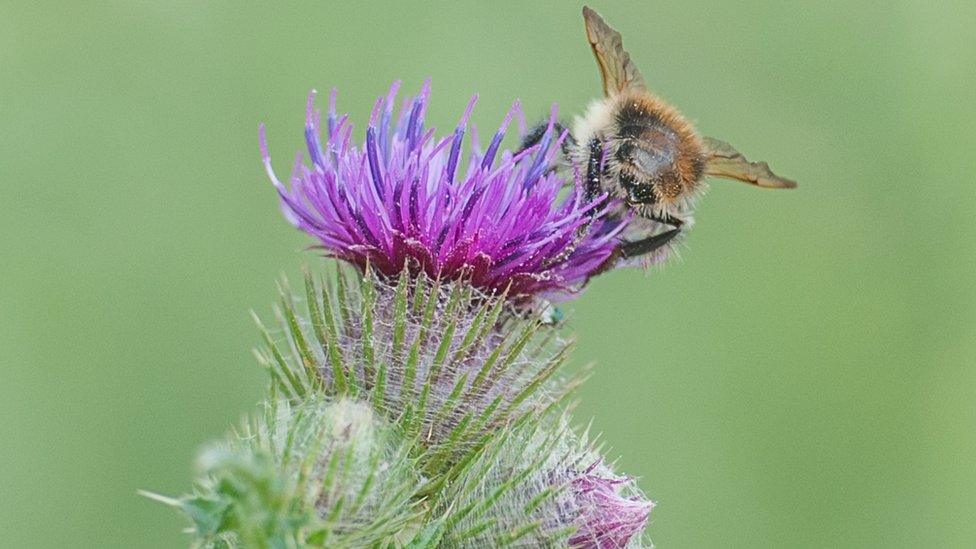Worcester academic transforms garden into wildlife haven
- Published
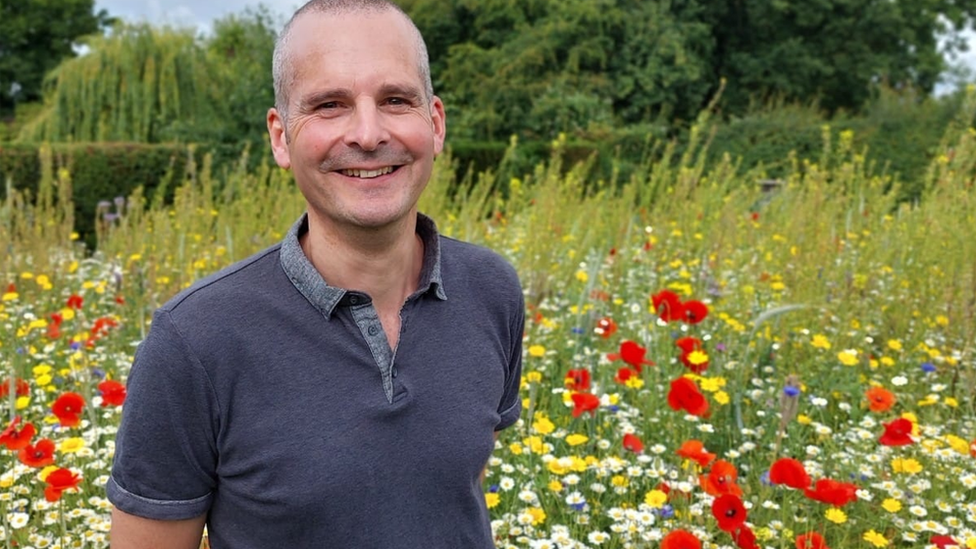
Dr Duncan Westbury's garden contains a wildflower strip
A university lecturer has transformed his Worcestershire garden into a wildlife haven rich in biodiversity.
Dr Duncan Westbury, from Malvern, has created an outdoor space that supports insects, reptiles, birds and small mammals.
The area also includes a wildflower strip, a meadow, a pond, bird boxes, "bee hotels" and hedgehog shelters.
The garden is set to feature on Gardeners World on BBC Two on April 28.
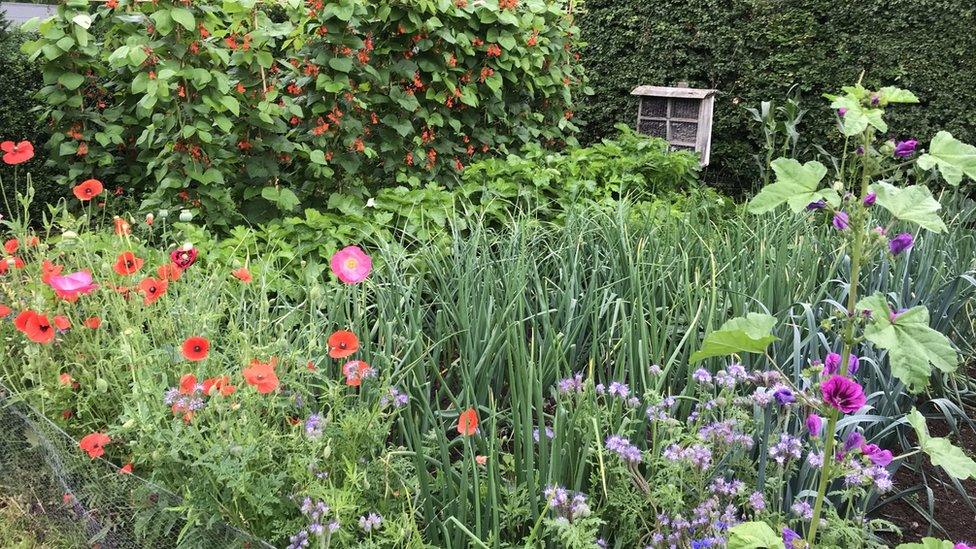
Dr Westbury's garden in Malvern, Worcestershire, also contains a meadow and mini woodland areas
Dr Westbury, who is the course leader for the University of Worcester's environmental management and sustainability degree, said he was "delighted" his garden was to feature on the show.
Having started work on the site in 2011, he said he had wanted to inspire others.
"If I inspire one more person to do more in their garden for wildlife then that is one more gardener that is doing their bit," he explained.
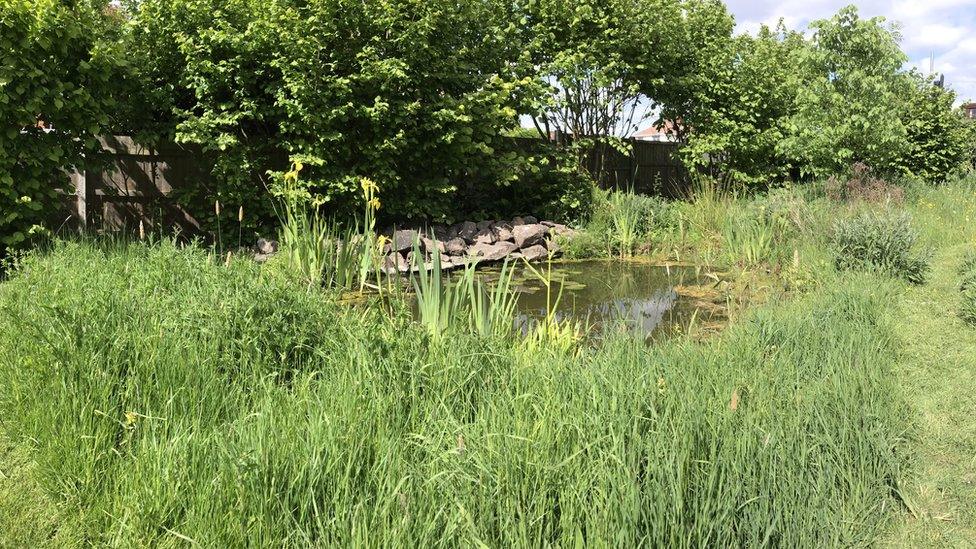
Dr Westbury started work on his garden in 2011 and has created a space for a small pond
He said all outdoor spaces, including apartment balconies, could be used to support local wildlife by planting wildflowers or by adding hanging baskets.
"If you want to make a difference for wildlife, start small, but think big," he said.
"Many wildflowers are easy to grow and don't need watering or feeding to make them thrive."
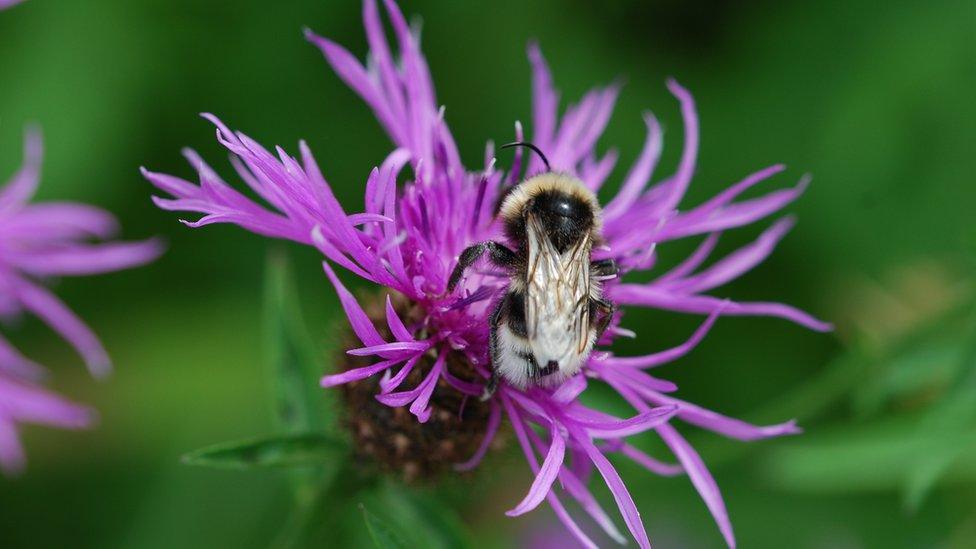
The transformed garden supports a range of insects and includes 'bee hotels'
He also advised people to cut their lawn's grass to 6cm, which would enable "better habitats for ground beetles" and would also provide food resources for hedgehogs.
"The principles and approaches now used by farmers and growers are the same as what I have done in our garden," he explained.
"Making all this space for nature means that we can grow fruit and vegetables organically while supporting wildlife."

Follow BBC West Midlands on Facebook, external, Twitter, external and Instagram, external. Send your story ideas to: newsonline.westmidlands@bbc.co.uk, external
Related topics
- Published25 July 2022
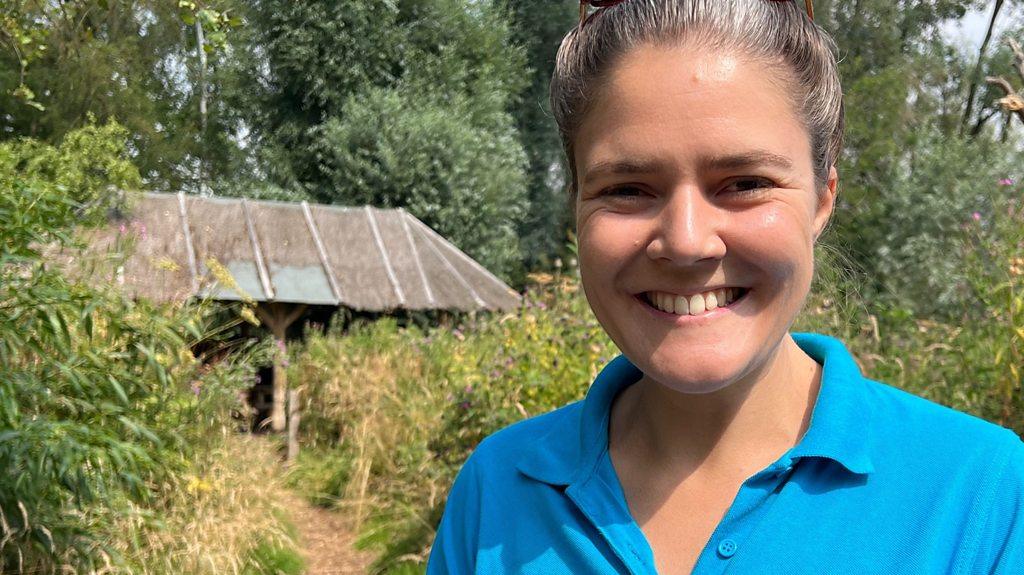
- Published31 March 2023
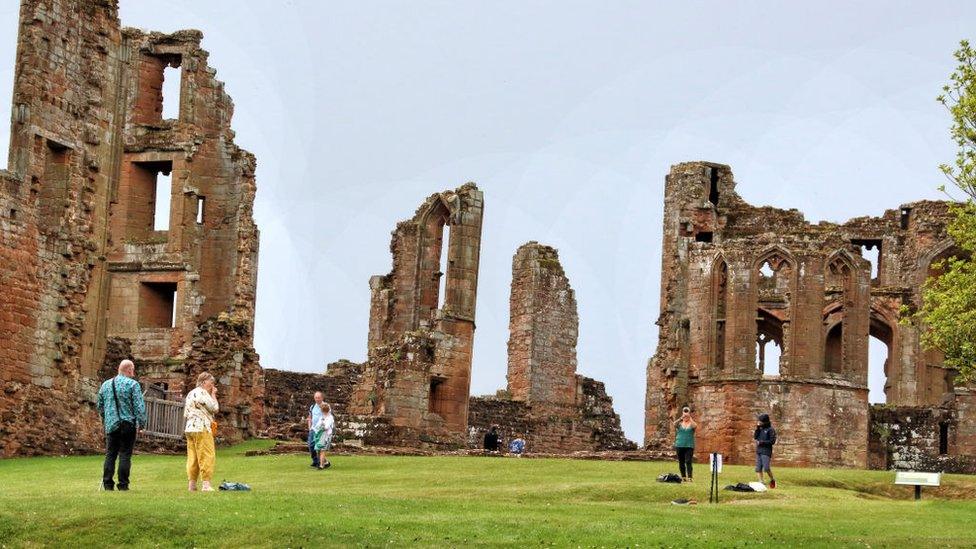
- Published21 April 2023
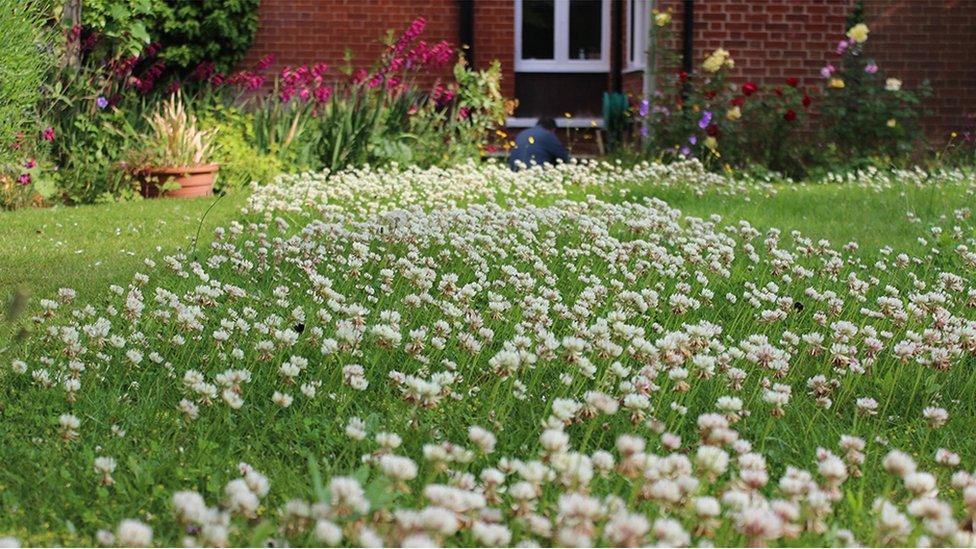
- Published9 April 2023
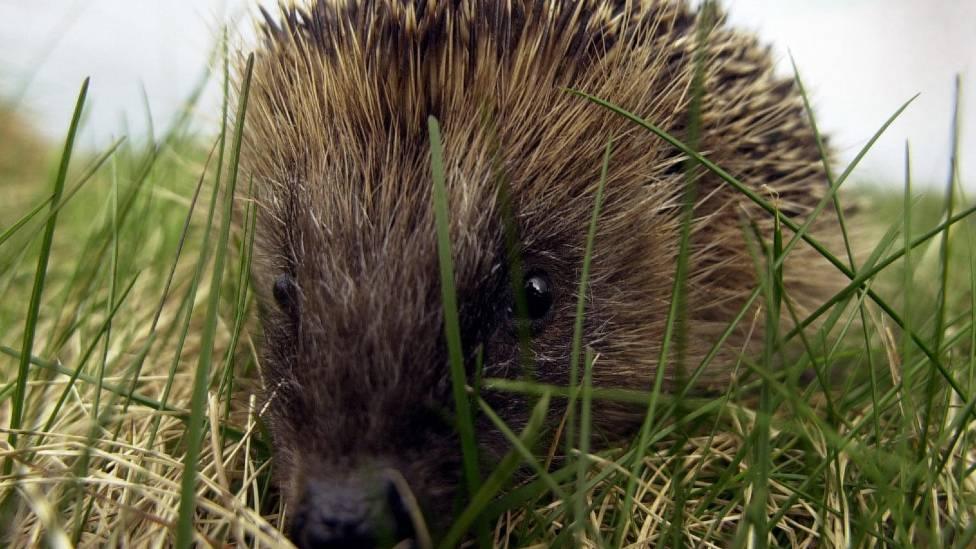
- Published28 February 2023
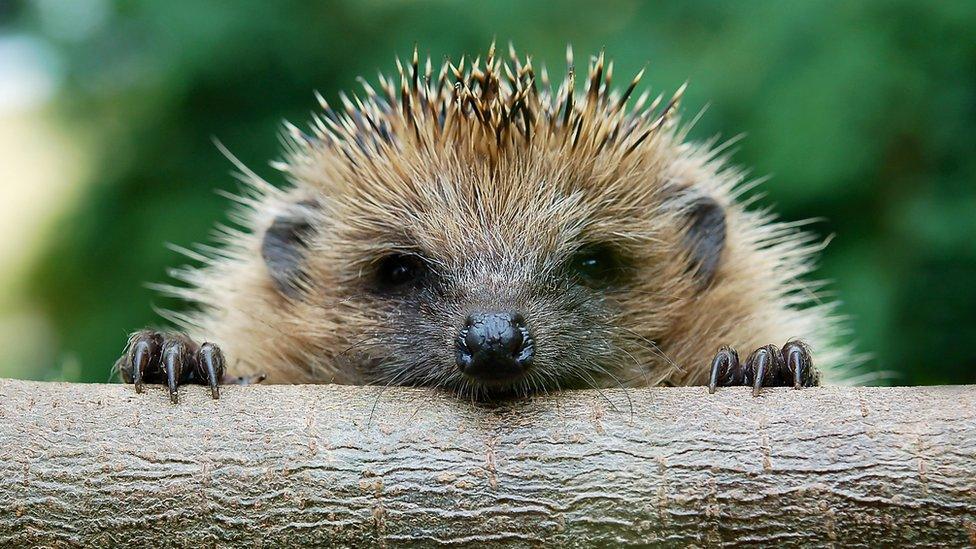
- Published10 March 2022
